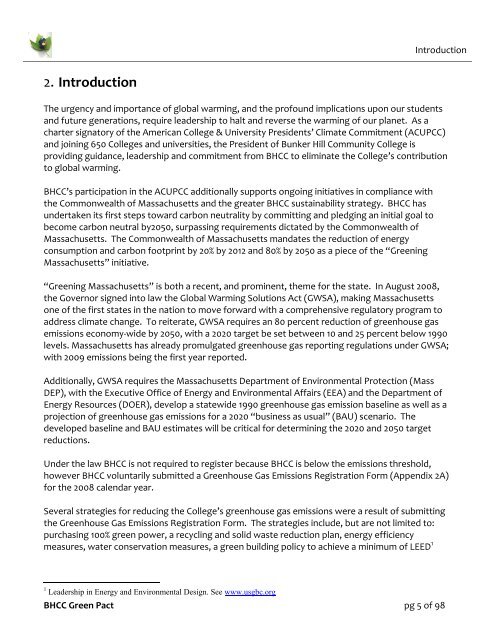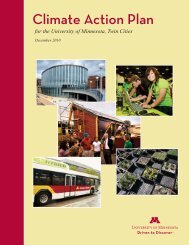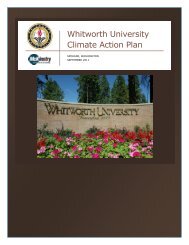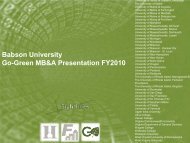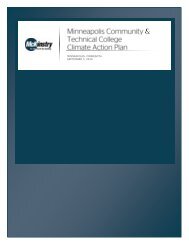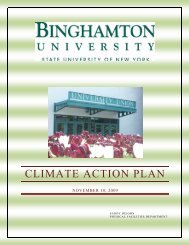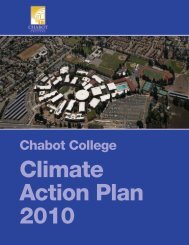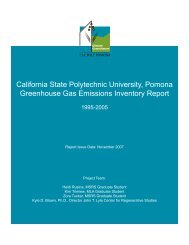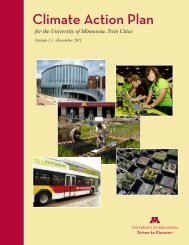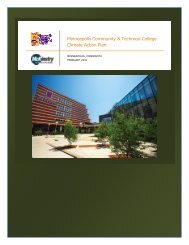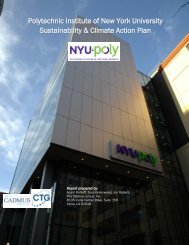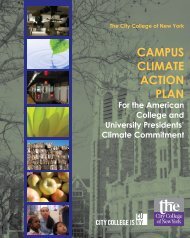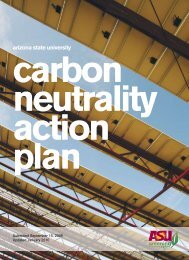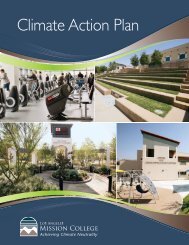BHCC's GreenPact - ACUPCC Reports - Climate Commitment
BHCC's GreenPact - ACUPCC Reports - Climate Commitment
BHCC's GreenPact - ACUPCC Reports - Climate Commitment
You also want an ePaper? Increase the reach of your titles
YUMPU automatically turns print PDFs into web optimized ePapers that Google loves.
Introduction2. IntroductionThe urgency and importance of global warming, and the profound implications upon our studentsand future generations, require leadership to halt and reverse the warming of our planet. As acharter signatory of the American College & University Presidents’ <strong>Climate</strong> <strong>Commitment</strong> (<strong>ACUPCC</strong>)and joining 650 Colleges and universities, the President of Bunker Hill Community College isproviding guidance, leadership and commitment from BHCC to eliminate the College’s contributionto global warming.BHCC’s participation in the <strong>ACUPCC</strong> additionally supports ongoing initiatives in compliance withthe Commonwealth of Massachusetts and the greater BHCC sustainability strategy. BHCC hasundertaken its first steps toward carbon neutrality by committing and pledging an initial goal tobecome carbon neutral by2050, surpassing requirements dictated by the Commonwealth ofMassachusetts. The Commonwealth of Massachusetts mandates the reduction of energyconsumption and carbon footprint by 20% by 2012 and 80% by 2050 as a piece of the “GreeningMassachusetts” initiative.“Greening Massachusetts” is both a recent, and prominent, theme for the state. In August 2008,the Governor signed into law the Global Warming Solutions Act (GWSA), making Massachusettsone of the first states in the nation to move forward with a comprehensive regulatory program toaddress climate change. To reiterate, GWSA requires an 80 percent reduction of greenhouse gasemissions economy-wide by 2050, with a 2020 target be set between 10 and 25 percent below 1990levels. Massachusetts has already promulgated greenhouse gas reporting regulations under GWSA;with 2009 emissions being the first year reported.Additionally, GWSA requires the Massachusetts Department of Environmental Protection (MassDEP), with the Executive Office of Energy and Environmental Affairs (EEA) and the Department ofEnergy Resources (DOER), develop a statewide 1990 greenhouse gas emission baseline as well as aprojection of greenhouse gas emissions for a 2020 “business as usual” (BAU) scenario. Thedeveloped baseline and BAU estimates will be critical for determining the 2020 and 2050 targetreductions.Under the law BHCC is not required to register because BHCC is below the emissions threshold,however BHCC voluntarily submitted a Greenhouse Gas Emissions Registration Form (Appendix 2A)for the 2008 calendar year.Several strategies for reducing the College’s greenhouse gas emissions were a result of submittingthe Greenhouse Gas Emissions Registration Form. The strategies include, but are not limited to:purchasing 100% green power, a recycling and solid waste reduction plan, energy efficiencymeasures, water conservation measures, a green building policy to achieve a minimum of LEED 11 Leadership in Energy and Environmental Design. See www.usgbc.orgBHCC Green Pact pg 5 of 98


